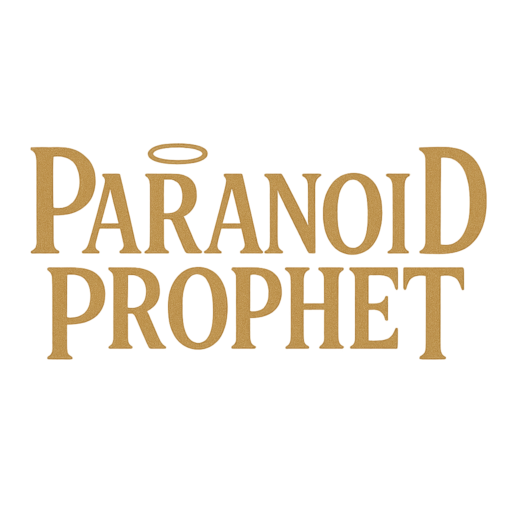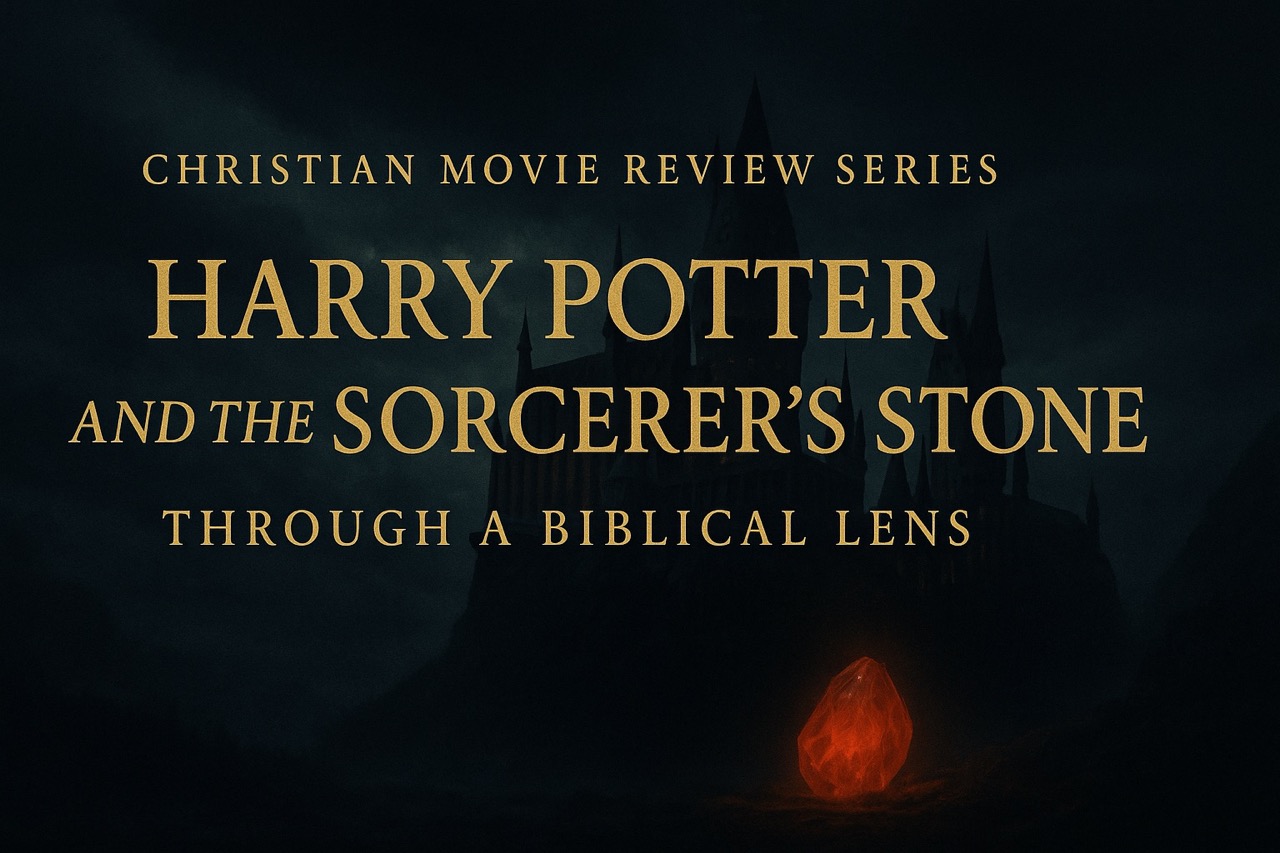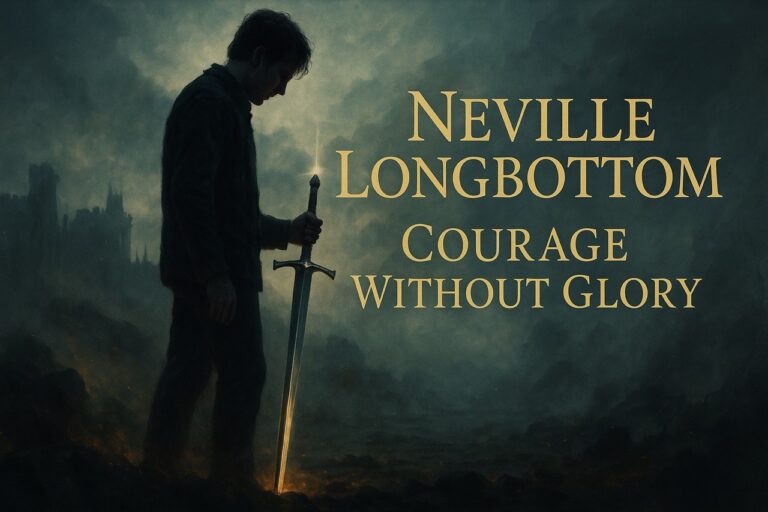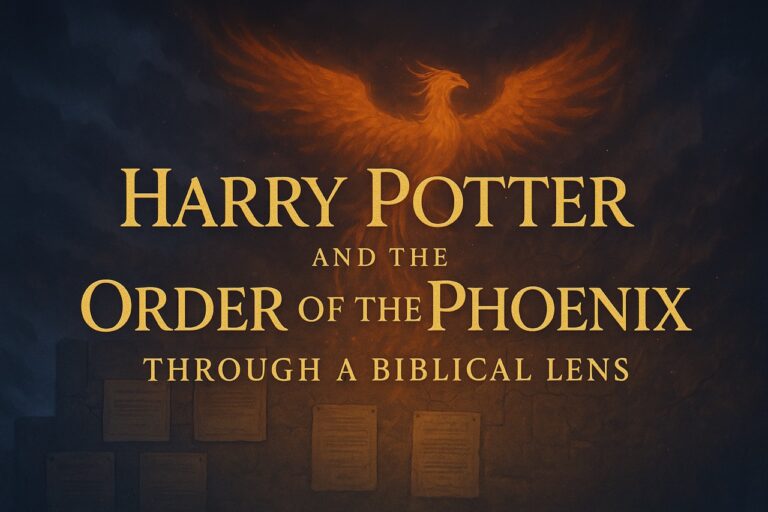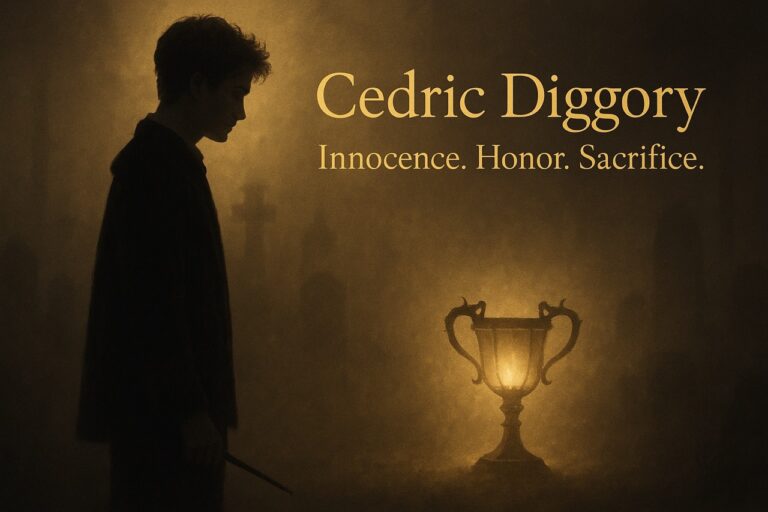This Harry Potter biblical review of Sorcerer’s Stone explores how a world filled with magic and mystery still echoes timeless truths. Through a Christian lens, we’ll examine the moral lessons, spiritual contrasts, and family conversations this story can spark — from hidden sacrifices to the dangers of pride. Not everything aligns with Scripture, but not all is as it seems either. This article offers a faithful look at the film’s symbolism, its worldview, and how Christian families can approach it with wisdom.
🧒 Parental Guide: Is Sorcerer’s Stone Age-Appropriate?
Overall Rating: ★★★★☆
Suggested Age: 8+ (with guidance)
Themes to Discuss:
- Magic and fantasy vs biblical warnings (Deuteronomy 18:10–12)
- Courage, loyalty, and sacrifice as Christlike echoes
- Good vs evil and moral ambiguity (e.g. Snape’s hidden motives)
- The danger of pride and the desire for immortality (mirrors Genesis 3)
Cautions:
- Frequent use of magic, spells, and incantations presented neutrally
- No mention of God or spiritual accountability
- Sorcerer’s Stone linked to alchemy and eternal life (philosophical rather than Christian)
Family Conversation Starters:
- Can good lessons come from stories that include unbiblical elements?
- How do Harry’s friendships reflect biblical love or loyalty?
- What does the movie teach about temptation and pride?
- Should Christians be cautious about media involving magic?
🧠 What This Harry Potter Biblical Review Reveals on Rewatch
“Snape was protecting Harry all along — and never once treated him kindly to cover his tracks.”
This twist reveals a theme many miss: sacrificial protection without recognition. Snape’s harshness becomes a form of hidden love, much like the biblical concept of discipline from a just authority (Hebrews 12:6). His actions remind us that righteousness isn’t always rewarded visibly, and that true intentions are often misunderstood.
✝️ Biblical Truths Hidden in Sorcerer’s Stone
Despite the magical setting, Harry Potter and the Sorcerer’s Stone mirrors several biblical truths:
- Temptation & Pride – Voldemort tempts others to seek power at all costs, echoing Satan’s original lies in Eden (Genesis 3).
- Sacrificial Love – Lily Potter’s death protects Harry — pure, selfless love that breaks dark power (John 15:13).
- Moral Courage – Characters like Neville and Hermione show that true bravery isn’t flashy, but righteous — a Proverbs-style virtue.
- Final Judgment – The Mirror of Erised and the Sorcerer’s Stone both symbolize eternal longing and temptation. Only those with pure motives succeed.
⚠️ Where Harry Potter Diverges from Scripture
While the story has valuable moral echoes, it also diverges from a biblical worldview:
- Magic as Neutral or Positive – Scripture clearly warns against sorcery and divination (Deuteronomy 18, Galatians 5:19–21), while the Wizarding World sees it as a gift.
- Self-Determination over Divine Guidance – The series centers on choice, willpower, and personal destiny — not divine providence or repentance.
- No Moral Absolute Authority – Dumbledore serves as a wise mentor, but there is no God, no Creator, and no grounding authority above all.
These tensions offer teachable moments. Not to reject the story, but to process it thoughtfully.
📚 Final Thoughts: Can Christians Learn from Magic Stories?
Harry Potter doesn’t teach Christianity — but it still stumbles into truth.
As Christians, we’re not called to live in fear of fiction, but to be discerning — “testing everything and holding fast to what is good” (1 Thessalonians 5:21). Watching Sorcerer’s Stone as a family can spark deeper discussions about identity, morality, sacrifice, and the spiritual war that’s far greater than any wizard’s duel.
It’s okay to enjoy fantasy — but only if we keep our spiritual armor on.
🔗 Related Reading on Paranoid Prophet
🌀 Spiritual Symbolism & Discerning Fiction
- Moloch Worship & Modern Media Parallels
- Ezekiel’s Wheel & UAP Symbolism
- Who Is God? A Simple Breakdown
- Genesis, Creation & Time Perception
📖 Wisdom, Temptation & Moral Themes
- Proverbs 4:23 – Guarding Your Heart
- Proverbs 9:10 – Fear of the Lord vs Worldly Wisdom
- Proverbs 16:24 – Words That Heal vs Words That Harm
- Proverbs 14:12 – The Way That Seems Right
✝️ Christ, Prophecy, & the Gospel Thread
- Was Jesus a Liar? Historical & Spiritual Evidence
- Prophecies of Jesus Fulfilled in Scripture
- Jesus in Revelation 1 – The True Chosen One
🔍 Christian Reviews of Harry Potter and the Sorcerer’s Stone
- Plugged In (Focus on the Family)
Balanced Christian review highlighting bravery, sacrifice, and moral themes, with caution around the fictional use of magic.
👉 https://www.pluggedin.com/movie-reviews/harrypotterandthesorcerersstone/ - ChristianAnswers.net
Critical perspective on spiritual concerns, especially magic and lack of biblical worldview.
👉 https://christiananswers.net/spotlight/movies/2001/harrypottersorcerersstone.html - CARM (Christian Apologetics & Research Ministry)
Examines moral issues and theological conflicts with Christian doctrine, especially sorcery and relativism.
👉 https://carm.org/book-and-movie-reviews/harry-potter-and-the-sorcerers-stone/ - Christian Answers for the New Age
Warns of underlying spiritual themes and philosophical issues in the narrative.
👉 https://www.christiananswersnewage.com/article/the-harry-potter-movie-harry-potter-and-the-sorcerers-stone - Dove.org
Notes positive traits like courage and friendship, while pointing out conflicts with biblical principles around magic.
👉 https://dove.org/review/3564-harry-potter-and-the-sorcerers-stone/
🙋♂️ Frequently Asked Questions (Christian Perspective)
❓Is it okay for Christians to watch Harry Potter?
Many Christians differ on this. Some avoid it due to the fantasy magic and lack of biblical worldview, while others believe it can be watched thoughtfully, using discernment. This article approaches Harry Potter and the Sorcerer’s Stone through a biblical lens — recognizing its moral echoes while highlighting spiritual concerns.
❓What biblical themes are in Harry Potter and the Sorcerer’s Stone?
The story surprisingly includes themes like sacrificial love (Lily dying to protect Harry), resisting temptation (Harry’s rejection of power), and moral courage (Neville standing up to friends). These moments parallel biblical teachings, though the film never references God or spiritual authority.
❓Does Harry Potter promote witchcraft?
The film normalizes the use of spells and magical training, which contradicts biblical warnings about real-world sorcery (see Deuteronomy 18:10–12). While the magic here is fictional and symbolic, it’s important for Christian families to talk through what the Bible says and how fantasy differs from reality.
❓How should Christian parents approach Harry Potter?
Parents should watch with their children, ask guided questions, and compare the story’s themes to Scripture. This creates teachable moments on temptation, self-sacrifice, pride, and choosing what’s right even when it’s hard.
❓Is Snape a good guy in Harry Potter and the Sorcerer’s Stone?
Yes, but subtly. On rewatch, it’s clear that Snape is protecting Harry behind the scenes. He treats Harry harshly to hide his intentions — a twist that mirrors how good can sometimes be mistaken for evil. It introduces moral complexity, which can spark thoughtful discussion.
❓What does the Sorcerer’s Stone symbolize spiritually?
The Stone represents the temptation of eternal life and power — achieved without God. It echoes the serpent’s promise in Genesis: “You will not surely die.” The fact that only someone who doesn’t seek it can obtain it reinforces a biblical idea: humility leads to life, while pride leads to destruction (Proverbs 16:18).
❓What age is appropriate for watching Harry Potter?
We recommend ages 8+ with parental guidance. While there’s little violence or foul language, the magic themes, moral ambiguity, and dark moments warrant discussion for younger viewers.
